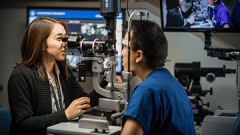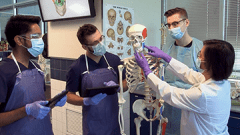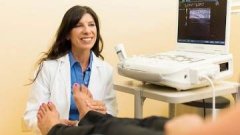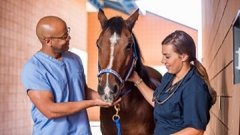Start the application process today.
At Midwestern University, we invest in you! We want to prepare you for a great future - helping others, serving the community, and making a real difference. Join us and start your journey to becoming a vital member of the 21st-century healthcare team.
Applications are online and admissions requirements may vary by campus location and program.
Explore your options
Dental Medicine
For the education of dentists who will demonstrate excellence in comprehensive oral healthcare and the discovery and dissemination of knowledge.

Graduate Studies
Endeavors to share existing knowledge, to create new knowledge, and to apply knowledge that contributes to improving the health of humans, animals, and the environment through One Health principles and practice. Programs include: Biomedical Sciences, Precision Medicine, and Public Health.

Health Sciences
Dedicated to excellence in the education of professionals who will meet the healthcare and service needs of the community. Programs include: Cardiovascular Science/Perfusion, Clinical Psychology, Doctor of Nursing Practice, Nursing (Adult-Gerontology), Nurse Leadership, Nurse Anesthesia, Occupational Therapy, Physician Assistant Studies, Physical Therapy, and Speech-Language Pathology.

Optometry
Providing the knowledge and skills to deliver the highest level of professional, ethical and compassionate eye and vision care.

Osteopathic Medicine
With an approach that underscores the osteopathic commitment to patient-oriented versus disease-oriented healthcare, D.O.s treat their patients as unique persons with biological, social, and psychological needs.

Pharmacy
Leading advances in pharmacy education, practice and scholarship through innovation and collaboration to meet the healthcare challenges of tomorrow.

Podiatric Medicine
Build your career as a podiatrist through a challenging and rewarding four-year program focusing on innovative instructional and learning techniques.

Veterinary Medicine
To improve animal and human life through innovative veterinary education, state-of-the-art healthcare services, and scholarly work relevant to the principles of One Health.

